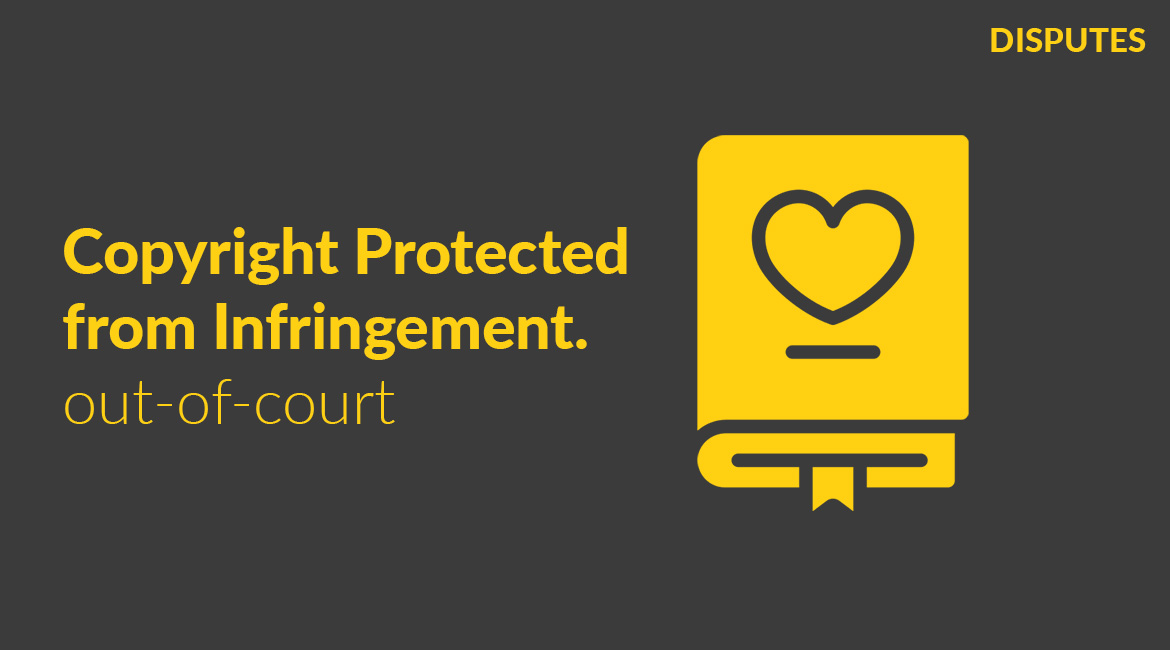Introduction
The protection of intellectual property rights in the digital age is becoming an increasingly pressing challenge for legal professionals. The issue of copyright protection on the Internet is particularly acute, as content can be copied and distributed almost instantly. In this article, we will examine a successful case of pre-litigation settlement of a copyright infringement dispute concerning a literary work, handled by the legal team of Disputes Law Firm in December, 2024.
Client’s Issue
In October 2024, a British citizen, an author of literary works, approached the Disputes Law Firm. The core of the issue was that his literary work, published under a pseudonym on a specialized literary platform, had been used without permission by a Ukrainian content creator to produce video content on a popular video-sharing platform.
The case was unique because the infringer did not merely copy the work but modified it while claiming that they had only used the "idea." This is a common situation where copyright violators attempt to evade liability under the pretense of creative adaptation of the original work.
Preliminary Analysis of the Situation
Before proceeding with the case, we conducted a detailed analysis of the available materials. Our client provided evidence of the first publication of the work on the literary platform, including the publication date and their pseudonym. Additionally, they provided a link to the video material where the adapted work was used, as well as correspondence with the video hosting platform’s administration.
The key point was the infringer’s response to the client’s initial complaint to the platform’s administration, where they essentially admitted to using the work without permission but attempted to justify their actions by stating that they had "rewritten the text for adaptation."
Legal Analysis and Protection Strategy
Based on the provided materials, we developed a comprehensive strategy to protect our client’s rights. Our legal position was based on several key provisions of the law:
According to Article 437 of the Civil Code of Ukraine, copyright arises from the moment a work is created, which confirmed our client’s rights from the first publication of the work.
Article 442 of the Civil Code of Ukraine defines that the publication of a work is an act that makes the work available to an unlimited audience for the first time, which was done by our client.
According to Clause 9, Part 1, Article 12 of the Law of Ukraine "On Copyright and Related Rights," adaptation is a form of use of a work that requires the author’s permission.
Preparation and Submission of the Claim
On November 1, 2024, we prepared a detailed claim-demand to the infringer. The document not only outlined the factual circumstances of the case and our legal position but also thoroughly explained the potential consequences of continuing the infringement.
A crucial element of the claim was referencing relevant case law, particularly the Supreme Court ruling of January 17, 2024, in case No. 308/7570/18-c, which confirmed the necessity of obtaining the copyright holder’s permission to use a work.
We also included a detailed calculation of possible court costs in case of litigation, including the cost of forensic intellectual property examination, expenses for professional legal assistance, court fees, and other procedural costs that could have been significant for the infringer had they not agreed to our terms.
Outcome and Conclusions
On November 21, 2024, we received an official response from the infringer, which exceeded our expectations. Despite the video platform administration’s previous decision in their favor, the infringer acknowledged the possible infringement of our client’s rights, announced the voluntary removal of the disputed content, provided a written commitment to refrain from using our client’s works in the future, and expressed readiness for constructive cooperation to avoid similar situations.
Practical Recommendations
Based on the successful resolution of this case, we can formulate several practical recommendations for effective pre-litigation settlement of copyright infringement disputes.
Carefully collect and document evidence of infringement, including publication dates and all instances of the work’s use. Record all attempts to resolve the conflict independently, including correspondence with the infringer and the platform administration.
Prepare a legally sound claim with references to relevant case law and a clear calculation of the potential costs the infringer may incur in case of litigation. Provide the infringer with a real opportunity to voluntarily cease the infringement and resolve the dispute through pre-litigation settlement.
Final Provisions
This case demonstrates that well-organized pre-litigation work can be an extremely effective tool for copyright protection. It is important to understand that even in situations where an infringer initially refuses to acknowledge wrongdoing, a professionally drafted claim with a clear legal argument and potential consequences often serves as a sufficient incentive for voluntary cessation of copyright infringement.
Successfully resolving such cases requires a comprehensive approach, a deep understanding of legislation and current case law, as well as knowledge of how online platforms operate and the specifics of protecting rights in a digital environment.

 EN
EN  UA
UA 






